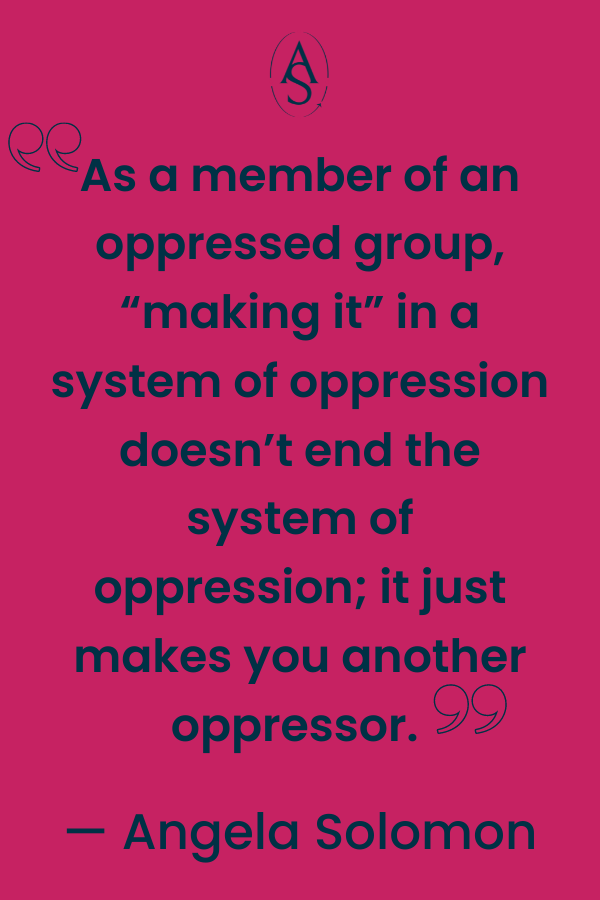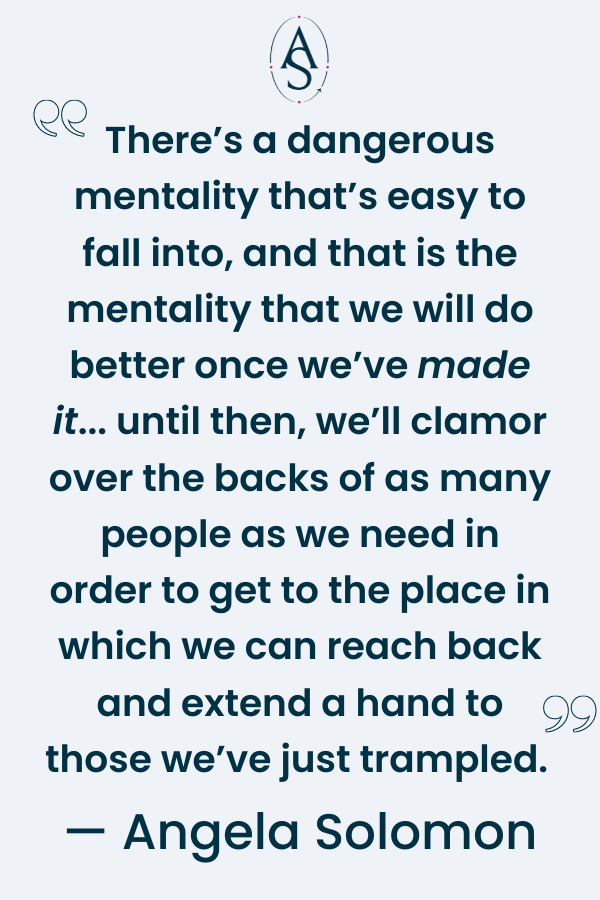Climbing the Mountain Together: What Corporate America Can Learn From Black Music
Last week, I watched the Nina Simone biopic on Netflix, What Happened, Miss Simone? It’s a brutal, beautiful and honest account of one of blues’ most important artists. Nina Simone was an extraordinarily talented pianist and songwriter, a passionate activist during the Civil Rights movement and a deeply troubled woman who eventually cracked from the relentless pressure of being pushed too hard in an already demanding industry. She suffered a mental breakdown, was later diagnosed as bipolar and spent the rest of her life either violent and unpredictable or heavily medicated and lifeless. What I didn’t know about her is that the biggest source of her oppression was her husband and the father of her child.
Shortly after Simone met her husband, Andrew Stroud, he began managing her career. They met at the beginning of her launch into stardom and together, they experienced an extraordinary amount of success. But as her career grew, Stroud pushed her so hard that she rarely was given a moment to breath. This was the 60’s, the Civil Rights movement was gaining traction and Simone was one of the voices that led the way. She spoke out in ways that no one had before in songs such as “Mississippi Goddam” and “Backlash Blues”, and her views on Black empowerment were radical and unequivocal. But Stroud felt that her political viewpoints were a liability to her career and discouraged her from speaking out about racial injustice, pushing her instead for mass appeal. Simone’s career was still her passion, but it became less and less an avenue of self-expression and more and more a source of exploitation. On top of that, Stroud beat her. Simone admitted to being afraid of her husband. He pushed her to the brink of insanity and beat her when she advocated for herself.
This is not an uncommon story. Simone was just another Black woman whose talents were used for her exploitation and whose life partner used his societal power over her to oppress her. Stroud was just another man who, having found success as a Black man, used that power to oppress the people below him instead of raising them up, propelling the cycle of abuse that he came from. As a member of an oppressed group, “making it” in a system of oppression doesn’t end the system of oppression; it just makes you another oppressor. The way to be successful without oppressing others is to short circuit the stepladder of oppression, and instead of walking on the backs of those who haven’t yet made it, offer your hand to pull them up with you.
There’s a mentality that people have developed in order to cope with our system of artificial scarcity. Like crabs in a bucket, we assume the only way to get to the top is to push those around us down so that we can breathe the thin slice of air at the top. And in order to make this violent rivalry and antagonism against our brothers and sisters feel okay, we learn to imbue the competition with value by telling ourselves that an unavoidable, if not virtuous, step along the path to success is struggling against the world to get there. I see this in corporate America every day. A Black woman makes it into a position of management and is even harder on the Black men and women below her, as if to either prepare them for the struggle she had to endure or to guarantee her position of power by assimilating into the tradition that hurt her. So she hurts others to assume the responsibilities she perceives to go hand in hand with her position of power. We’ve mistaken this pattern to be the rules of the system so that in order to play the game, we need to buy into its practices, however onerous. But oppression, scarcity and rivalry are not the rules, they’re just a bad habit. We can change this mentality of scarcity in which our power neccesitates the oppression of others and in which success is earned only through struggle and fighting. There’s another way.
One of my favorite things about Hip Hop and R&B is the practice of sampling. This is when an artist integrates a recognizable clip of another artist’s recording into their music, referencing the past while reframing it in the present. This practice is done is many forms of music but seems most common in Black-dominated genres. What I like so much about this practice is that it’s an explicit nod to other artists within the context of one’s own art. This broadens the reach and history of a song by bringing in the associations, talents and history of other artists, while also paying tribute to the legacy of artists that the music is inspired by. It acknowledges that no one is an island and everything that is possible today is possible because of the work of the people before us and around us. A big part of the culture of Hip Hop and R&B is this practice of raising each other up, referencing the past, building upon past progress, and standing on the shoulders of our ancestors and community members.
In the Obama administration, a group of minority women enacted a policy in board rooms where whenever one person would make a point that dovetailed off of another person’s point, they would cite the other person by name before making their point. They did this in order to remind the room that no one person’s ideas are possible without the ideas of another person and so that those with quieter voices or less power would be acknowledged for their contributions and not get lost in the fray. Sampling is like this. It’s a practice of spreading out credit so that when one person wins, that success is given to everyone who contributed to the final piece. This is the model we should be practicing in the workplace and in life. In order to grow as a people, we need to do better by our own people.
But we need to do it now. There’s a dangerous mentality that’s easy to fall into, and that is the mentality that we will do better once we’ve made it. Once we have the power to make a difference, we’ll use that power for good, but until then, we’ll clamor over the backs of as many people as we need in order to get to the place in which we can reach back and extend a hand to those we’ve just trampled. Surely Nina Simone’s husband and manager Andrew Stroud believed that Black people should be free and empowered. But he was so busy assuring his own freedom and empowerment that he didn’t look at the damage he was doing along the way. If we keep pushing our own people down in order to get up, we’re just maintaining our own oppression. Your actions matter at every level, and if you’re waiting to arrive to start helping the people around you, many more people are going to suffer along the way.
What we in corporate America need to do is reach over to those behind and around us, grab hold of them and climb the mountain together. We need to help others and cite others who helped us — even if they just helped us by leading through example. We need to build our own support system and build up a culture of charitable giving, of humble receiving and of communal uplifting.
We need to treat each other well, from the bus stop to the board room, so that every success each one of us experiences raises all of us up.

Earbuds Pairing: "Intro" by India Arie
Remember India Arie? Her first album, Acoustic Soul, came out in 2001 and earned her almost instant cult status, at least in my household. India is groovy, soulful and sensual while also proudly staking her African heritage in her traditional African dress and styling and in songs like “Brown Skin” and “Video”. She also makes it a point to pay tribute, in her music, to those who came before her. In fact, she opens her debut album with a simple 50 second intro song in which she names some of her Black musical heroes and then closes out the short lyrical intro with a reference to Sam Cooke’s monumental 1964 Black power ode, “A Change Is Gonna Come”. She then closes her album with another tribute, this time to Stevie Wonder, citing him as a powerful influence and inspiration in both her life and her music with lyrics like, “You inspire me, the way you make me feel inside is amazing/Your honesty, your artistry is engaging/You are everything I hope to be”.
India didn’t wait until she won an Emmy to pay tribute to her community. She started with it.







